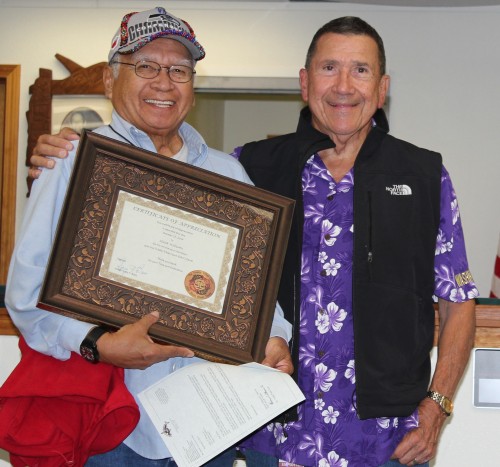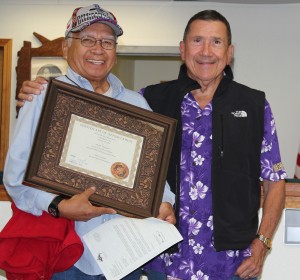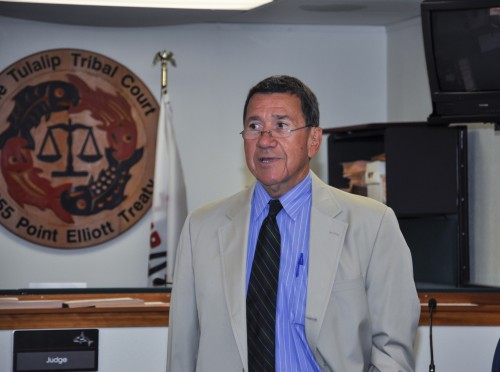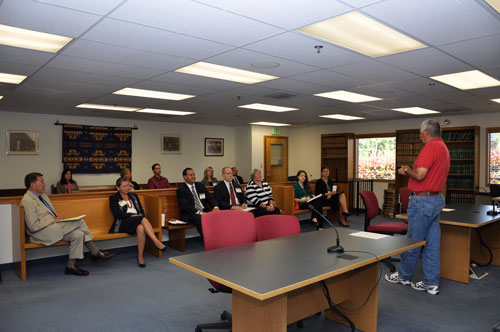By Kalvin Valdillez, Tulalip News
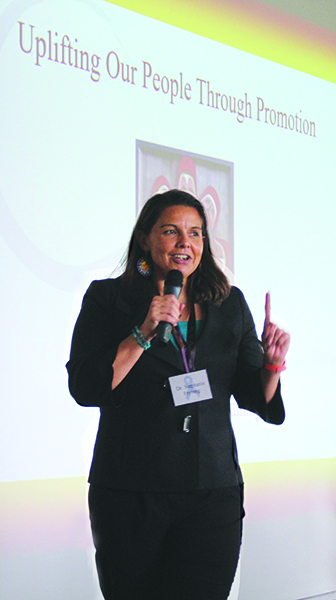
In January 2016, the Tulalip Tribes and the State of Washington signed a Memorandum of Agreement (MOA) that would allow the two entities to collaborate on government-to-government issues regarding child welfare and Tulalip youth. Tulalip wants to ensure that the youth of the community remain connected to their culture and their people.
Previously, in the event that a Tulalip child was taken out their home, the child would enter the system and often would be placed in the home of non-natives. This practice caused a disconnect between the youth and their families and culture. Tulalip has long worked on a resolution, and at the beginning of 2016 the resolution was presented in the form of the MOA. The agreement involves the Tulalip Tribal Court, beda?chelh, and Child Protective Service caseworkers uniting together to ensure that when a Tulalip youth is removed from the their parent’s guardianship, that child will relocate but remain with family. If family is unable to take the child in, alternate families throughout the community are considered and are the next option for placement. Once the child is relocated, beda?chelh team members remain involved, often assisting the families with guidance and informing them when cultural and community events are occurring.
Recently, in the month of November, caseworkers and team members of Washington State Children’s Administration traveled to the Tulalip Administration Building for the first annual Tribal Training Under the MOA. Tulalip’s goal for the first training was to make sure the trainees had a clear understanding of how a tribal community operates.
The trainees had the opportunity to meet the teams they will be working with including, Judge Whitener and the Tulalip tribal attorneys, the beda?chelh team, as well as Tulalip Tribes General Manager Misty Napeahi and Kinship Coordinator Verna Hill.
Dr. Stephanie Fryberg, keynote speaker, shared her experience growing up on the Tulalip Reservation. She explained that the modern society praises an independence lifestyle, which is introduced at a young age. Independence is based on the decisions an individual makes, meaning a person’s successes and failures are placed entirely on that individual.
She then explained to the group the opposite of independence, interdependence. Dr. Fryberg explained that the majority of the world adapts the interdependence lifestyle. Interdependence is the reason why many cultures including, Native American, have strong, deeply connected communities. With interdependence, each individual has a role to play within their community. If a person fails they are supported by their community, allowing the individual the opportunity to learn why they failed. Not only does this present the opportunity for the individual to learn from the mistake but also the chance for more experienced members to pass down advice and knowledge to the individual, therefore making a stronger connection amongst community members.
Dr. Fryberg spoke of the importance of growing up in an interdependence based community. She informed the group that she has taken in two Tulalip tribal children, the youngest an infant boy who was born prematurely.
She states, “He’s really had a big impact on the way I think about what we are doing in our community. The idea of focusing on promoting our people is really helping others see the strength in our people. This is something that has been really important and it will help move us away from the systems that have continued to hold people down. In particular the systems that have kept some families of our communities in foster care. And what we’re trying to do is interrupt that cycle. In our community there’s a real desire for well-being, there’s a real desire to help us move forward. What we’re doing is trying to be very purposeful in this work we are doing, as we continually think about how do we get better.”
She continued, “In that process we realized that change is hard, but it is hard because we are fighting against all of the mindsets people have. We’re trying to be purposeful in understanding that it’s not just about individuals. They exist in a system. We can try to change the system to make it easier for our people. To help scaffold what it means to take those steps, to help improve them. And by improving them, we improve the next generation in our community.”
Dr. Fryberg stated that the young boy in her custody was born drug exposed. She researched different methods that would give the child in her care the greatest future possible. She stated, “I don’t know what the drugs did to his brain while he was in his mother’s body. I can’t know. But what I do know is that I will do everything for this little boy every day of his life to give him the best chance possible. And he is so loved! There are many families like mine in our community. There are many people who’ve taken in these babies and children, and said they are going to commit to these little souls with every ounce of energy they have.”
Wrapping up her speech, Dr. Fryberg addressed the trainees, “What we want you to walk away with today are three things. Number one, we want to approach our families, especially our most vulnerable families, from a place of promotion. They’re already in a terrible place. Most of them didn’t get there because they were awful people, but because they had awful experiences. So, we want to start from a place of promotion, and we want to put families back together. We have to find a way to empower people when they are most vulnerable because a lack of empowerment will never lead to change. Number two, we have to understand that there is more than one good legitimate way to be. There are different ways of existing in the world, there’s different ways of expressing, of thinking, and being motivated. And third and lastly, we have to know what our bias is and be willing to confront it in every interaction in the community and at home. Our objective is to make sure we do our best by our families and by our children.”
Contact Kalvin Valdillez, kvaldillez@tulaliptribes-nsn.gov


